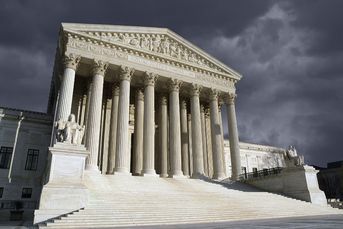Cares Act student-loan relief has few takers

Workers can receive as much as $5,250 for debt repayment, tax free, from employers
Employers can pay down their workers’ student loans by more than $5,000 this year, tax free, under a provision in the Cares Act. But a big question is whether many would even consider doing so in the current economy.
Included in the recently passed relief is a quirk that allows companies that make payments toward their employees’ student loans to contribute as much as $5,250 through Dec. 31, with that money not counting toward workers’ taxable income. For people who have jobs and are struggling to pay their loans, that could be great news.
Across industries, however, companies are laying off or furloughing millions of workers. And many are reducing or eliminating the contributions they make to their employees’ 401(k)s.
“Most employers right now are struggling. Most individuals are struggling,” said Tara Fung, chief commercial officer at student-loan provider CommonBond. But, “We do recognize that right now, there are some companies that are struggling with staffing needs, where this benefit could be helpful.”
For the sectors that are not suffering financially, such as grocery chains, health care businesses, some tech firms, there has been interest, Fung said.
“We are speaking with a few employers right now,” she said. “They’re open to considering this.”
Student loan assistance has increasingly been added by employers as a way to attract and retain workers. This year, CommonBond added a service that lets companies make 401(k) contributions on behalf of employees who are paying down student loans, but not deferring any of their pay toward the retirement plan.
The employer student-loan provision is not the only aspect of the Cares Act designed to help alleviate workers’ college-debt woes amid the pandemic. The new law also allowed grads to suspend payments on federal student loans through September.
More than 60% of people with student loans said they are worried about their ability to make payments in the current economy, according to a recent survey of 1,000 Americans commissioned by LendEDU. More than 20% of people surveyed said they were currently paying down such loans.
That speaks to the appeal of employer-provided student-loan assistance.
Student loan burdens
The tax-free contribution provision in the Cares Act is not new — it stemmed from separate legislation to fix an “outdated part of the tax code” that has been introduced in Congress three times, Fung said. The provision extends the current tax treatment of employer-provided tuition assistance to student loan contributions, she noted.
“Overwhelmingly, this is just good legislation that was passed at a time when there was a lot going on, which is why it’s being put under a microscope,” she said. “This is meant to help people with student debt.”
One client, a cosmetics company with about 5,000 employees, would benefit, Fung said. That company had implemented a student-loan payment benefit of $50 per month for workers, but many turned it down, given the tax consequences, she said.
“They couldn’t take the hit to their take-home pay,” she said. “They would see a decrease of roughly $15.”
A separate benefit of the temporary Cares Act provision is that it requires employers to perform non-discrimination testing to help ensure that highly compensated employees do not disproportionately benefit, Fung said. For the taxable student loan contributions prior to the Cares Act, such testing was not required, she noted. That kind of testing is required for retirement plans such as 401(k)s, under the Employee Retirement Income Security Act.
Navigating the crisis
For companies that are interested in making payments this year to employees’ student loans, it could be several weeks or months before they act, according to two retirement plan record keepers.
“Many employers right now are trying to navigate the bigger impacts of Cares,” said Asha Srikantiah, head of student debt at Fidelity Investments. “We are in communication with them about it, [but] it is still early days.”
“Many student-debt borrowers that work for companies that provide this type of benefit would obviously love for this to be extended [beyond 2020],” she said.
Another firm, Empower Retirement, is also supportive of the provision being extended, a spokesperson said in an email.
“We believe this is an important benefit that could help student loan borrowers over the long term,” he said. “Many clients have expressed interest in this new provision, however there is currently a greater plan sponsor focus on other issues related to the Cares Act and the more immediate needs of plan participants.”
Learn more about reprints and licensing for this article.








